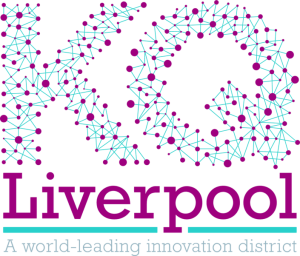New Strategic Partnership for The Pandemic Institute
The Pandemic Institute has signed a Memorandum of Understanding with the UK National Measurement Laboratory at LGC (NML) at
an event held in Liverpool last week.
The partnership will bring the organisations together to work more closely on pandemic preparedness, as well as strengthen industry and academic links in the Liverpool City Region.
NML are the UK’s Designated Institute for chemical and biological measurement and play a leading role in standardisation of measurements across the world so that, for example, a medical test result obtained in London can be compared directly with test results from hospitals in Sydney, Seattle or Shanghai. This was of particular importance during the COVID-19 pandemic, and NML have recently
launched their ’Roadmap to Metrology Readiness for Infectious Disease Pandemic Response’, which identifies priorities and sets out pathways for pandemic preparedness for the measurement community.
Professor Julian Braybrook, UK Government Chemist and Director of NML, presented the roadmap at the event:
“The Roadmap sets out recommendations for specific measurement interventions that could enable a more rapid response and enhance clinical outcomes in a future pandemic. Through these interventions, it aims to provide globally accepted baseline measurements to empower health policy decision makers and give them confidence in the data which guide their interventions.
“We’re excited to be working more closely with The Pandemic Institute and other key stakeholders in the LCR. Liverpool has a long history of driving innovation in infectious disease research, and the city region has recently been designated by the UK Government as a High Potential Opportunity for foreign investment in vaccine development and manufacture.”
With a new northwest base planned in The Spine, Liverpool, The Pandemic Institute is looking forward to working more closely with NML, including the upcoming plans for a PhD studentship working on Lipid Nanoparticles (LNPs), which are small particles used for the delivery of some drugs or vaccines.
Professor Neill Liptrott, Chair in Pharmacology & Immunocompatibility Pharmacology & Therapeutics at the University of Liverpool, said:
“As part of our existing long-term plan with NML we are excited to collaborate on this PhD studentship, which aims to establish critical parameters of LNP formulations for vaccines and nucleic acid therapeutics and representative materials to support developers of LNP therapeutics. Working with NML since 2019, our partnership has gone from strength to strength, with joint academic posts between the University of Liverpool and NML and current plans to establish metrology within the Centre of Excellence for Long-acting Therapeutics (CELT Global Health). Partnerships like this are critical to ensure that metrology and measurement science underpins the exciting biological work that we and others do, providing our work's robustness and transferability.”
Dr Ray Kent, Chief Operating Officer at The Pandemic Institute, added:
“One of The Pandemic Institute’s major strengths is bringing together key organisations in pandemic preparedness and response, to ensure we are never as unprepared again as we were in 2019. We are delighted to be signing this MoU with NML and welcoming them to Liverpool, and we’re looking forward to combining our future efforts.”
For more information on UK National Measurement Laboratory at LGC (NML), click here.

